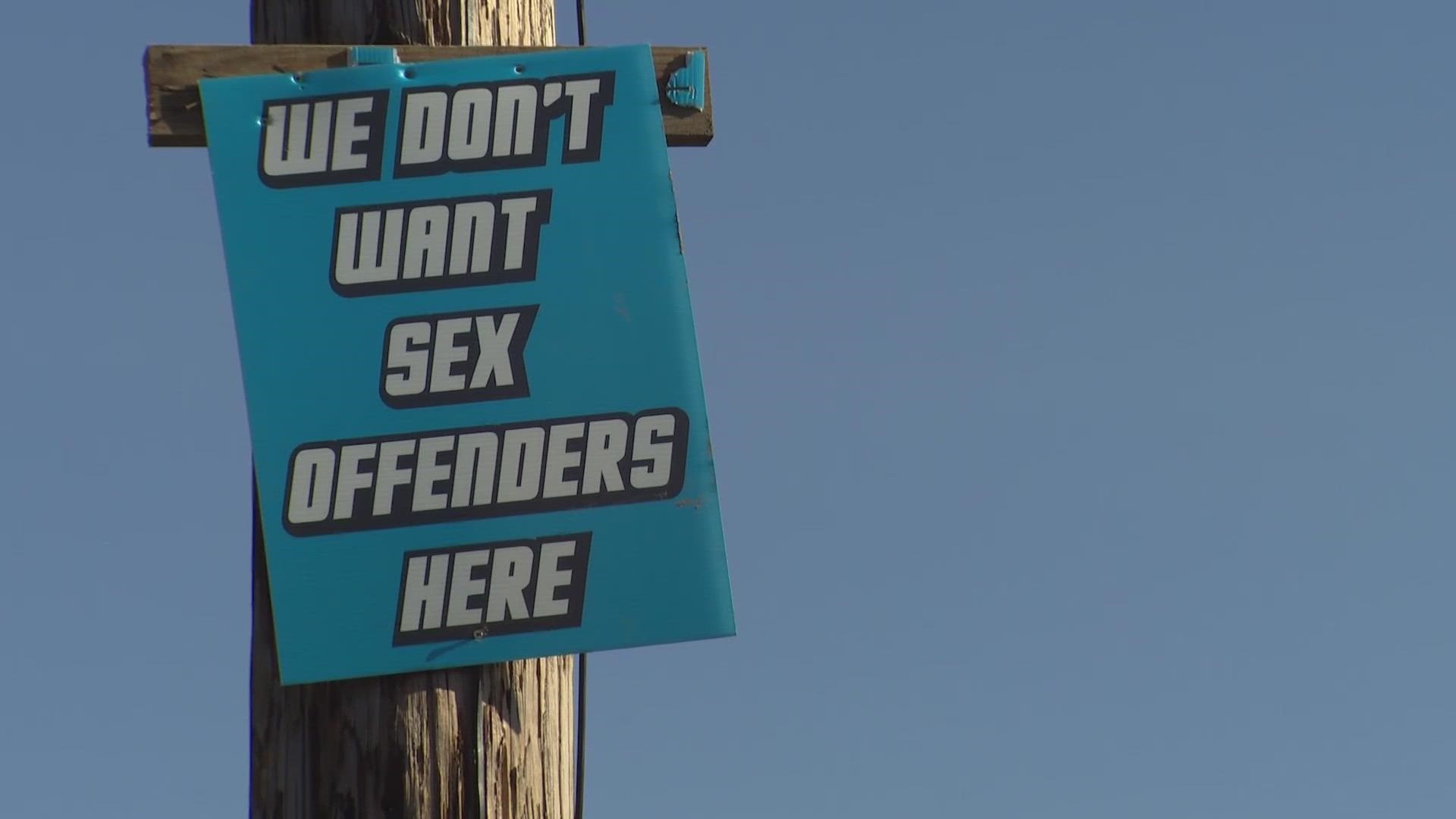THURSTON COUNTY, Wash. — A Thurston County community is rallying against the state’s plan to house sex offenders near Tenino. With opening day approaching fast, county leaders are calling on the Department of Corrections and DSHS to answer questions.
State officials were supposed to attend a town hall on Sunday, but they canceled after receiving threats. Instead, DSHS will hold a community webinar this Wednesday at 6 p.m.
Some residents want a plan stopped that would allow offenders registered as sexually violent predators to move to a property off 140th Avenue SW near Tenino. These offenders are transitioning from total confinement at the Special Commitment Center on McNeil Island.
"Potentially up to five people could be inside this facility,” said Thurston County Sheriff Derek Sanders. "When you look at the current model, I think it is horrific."
Kerri Jeter and her family live about a mile from the site. She said there has not been enough communication with community members.
"There is a lot of fear, and they are concerned about the public safety,” said Jeter. "The public didn't have any say in this."
The plan is for a 15-acre property in a rural area near Tenino to become a Less Restrictive Alternative or LRA. The state describes it as an outpatient treatment program in a community setting.
“A secure community transition facility is one that is owned and operated by DSHS and we have our employees there,” said Tyler Hemstreet with DSHS.
DSHS operates programs that help civilly committed sex offenders who have completed their prison sentences. In this case, DSHS says Supreme Living, a residential care services company, would be on site, running the facility.
Sanders said residents are rejecting the plan.
"The state of Washington has inflamed a small community and at this point, I think the best thing they can do is terminate the contract and start over. That might mean choosing a better location in Thurston County to put this,” said Sanders.
According to DOC, once a resident arrives on the property, they must:
- Wear an ankle bracelet continuously through the term of supervision. These GPS devices track the location of the resident 24 hours a day, seven days a week. If the individual goes out of bounds, an alert is triggered and DOC is immediately notified. A community correction specialist staff is on call at all times to monitor and respond to any alerts.
- The individual must call his/her community corrections specialist when leaving from and arriving at any destination.
- There is a curfew with strict limitations as to what time a resident is required to be home.
- Itineraries for travel must be pre-approved and include approved routes that are monitored by GPS in real-time.
- DOC vets and surveys all potential travel through the multi-agency Transition Team (Community corrections officer, sex-offender treatment provider, mental health provider, housing provider and DSHS staff).
- Subject to random drug and alcohol tests.

